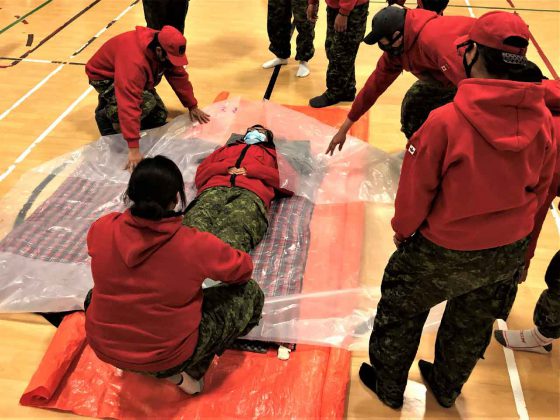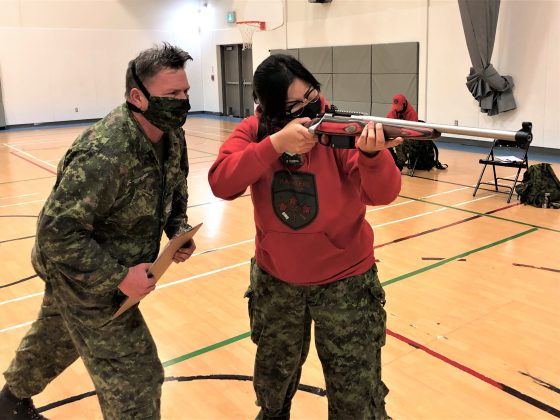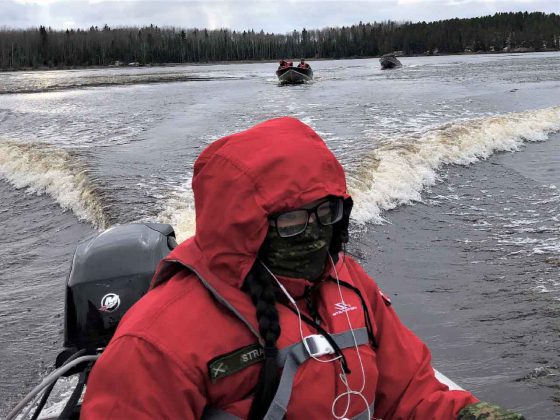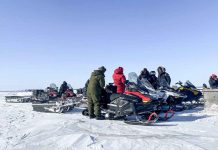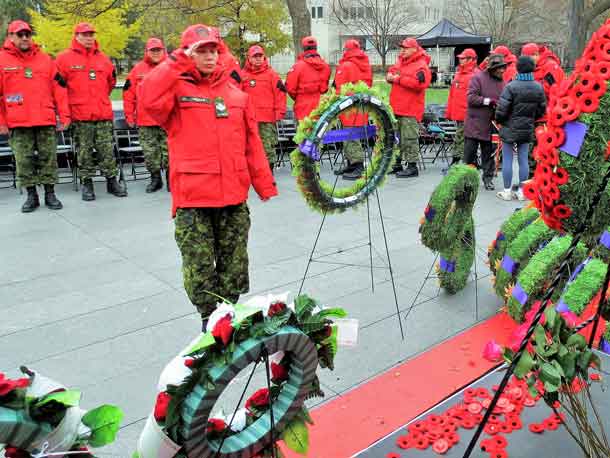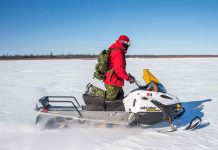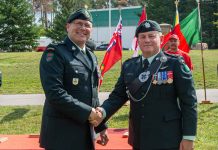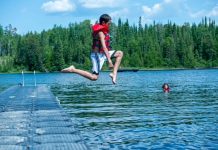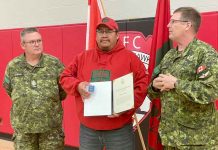![fergus o'connor and[1] Master Warrant Officer Fergus O'Connor instructs Master Corporal Lilly Kejick on the correct use of the Ranger .308 rifle. Credit Warrant Officer Carl Wolfe](https://www.netnewsledger.com/wp-content/uploads/2020/10/fergus-oconnor-and1-696x522.jpeg)
By Peter Moon
Canadian Rangers in Pikangikum First Nation are the first in Northern Ontario to resume the regular Ranger training that was suspended by the Canadian Army because of the Covid-19 pandemic.
“It’s good to be back doing training,” said Corporal Donny Quill of the Pikangikum Ranger patrol. “I enjoy being a Ranger and being able to contribute to my community and being able to make a difference when we’re called on.”
Members of the Pikangikum Ranger patrol played a leading role last year when hundreds of residents were forced to evacuate twice by military and civilian aircraft when the community was threatened by out of control forest fires.
Several Rangers from Pikangikum also helped when a house fire killed five people in Kitchenuhmaykoosib First Nation last summer. The community feared the deaths would lead to suicides and social instability and asked for army help. Rangers were dispatched to provide the First Nation with support.
Pikangikum is an isolated Ojibway community 510 kilometers north of Thunder Bay. Across the Far North of Ontario, there are more than 600 Rangers, who are part-time army reservists, in 32 First Nations, most of them remote and isolated.
When the Covid-19 crisis began many of the First Nations in the province’s Far North closed themselves to visitors, fearing they would bring the virus with them. Most remain closed. As a result, the Canadian Army suspended regular Ranger training in the communities. The training is provided by army instructors based at the headquarters of the 3rd Canadian Ranger Patrol Group at Canadian Forces Base Borden, near Barrie.
The recent training visit to Pikangikum followed extended discussions by the army with chiefs in the First Nations with Ranger patrols. The chiefs value the trained response provided by Rangers in local emergencies such as search and rescue and evacuations.
“Pretty much all the First Nations, with the exception of those on James Bay and Hudson Bay, have asked to begin training again,” said Lieutenant-Colonel Shane McArthur, the Canadian Army officer who commands the Rangers in Ontario.
To allay fears that the Ranger instructors might bring the coronavirus with them they are tested before flying in chartered aircraft from their headquarters to the community in which they are going to conduct training. “They are subject to positive testing before and after the flights,” Colonel McArthur said. While in a community they must adhere to the stringent requirements of the Canadian Armed Forces rules on Covid safety and any required by the First Nation.
The training in Pikangikum included requalifying on the Ranger .308 rifle, an on-the-land trip, and cold water immersion training to aid victims of hypothermia.
“The newer, younger Rangers were well-motivated,” said Warrant Officer Carl Wolfe, who led the training team of three instructors. “They worked hard, trained hard, and are motivated and dedicated. They want to be ready to help their community.”
Many similar training visits will be taking place between now and the end of the year, Colonel McArthur said.
(Sergeant Peter Moon is the public affairs ranger for the 3rd Canadian Ranger Patrol Group.)


